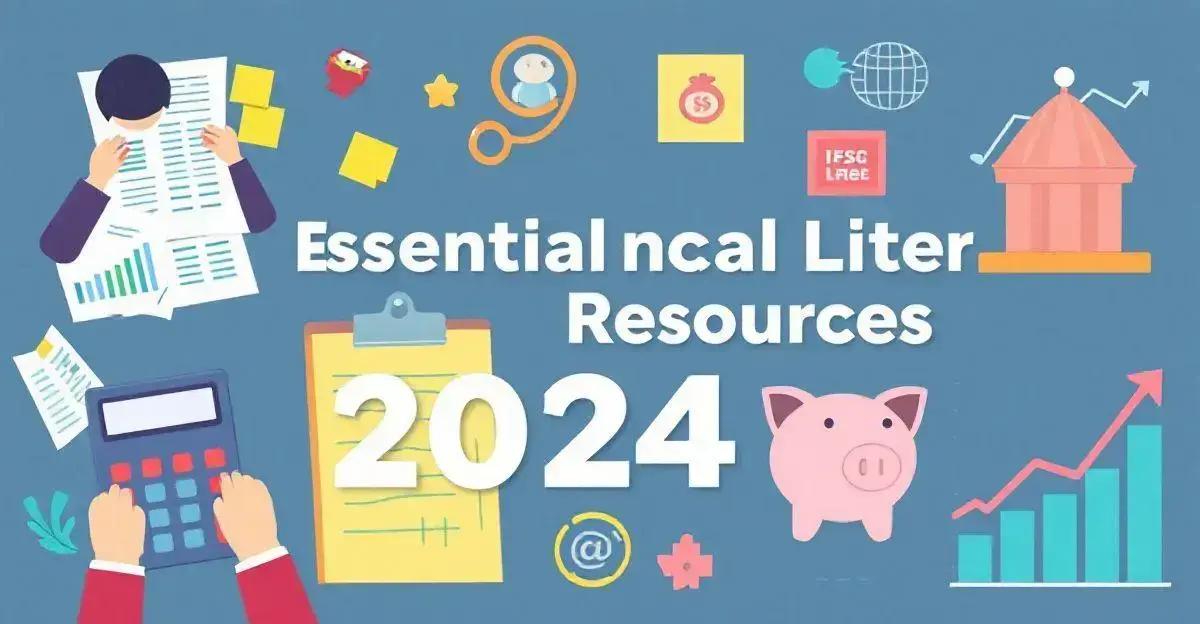Are you tired of living paycheck to paycheck, wondering how to break free from the cycle of financial stress? Look no further!
In this comprehensive guide to personal finance, we’ll dive into the essential strategies and best practices to help you achieve financial freedom.
From creating a budget to investing for the future, we’ll cover it all.
Setting Financial Goals
Setting financial goals is a crucial step in achieving financial freedom. It’s essential to define what you want to achieve, whether it’s paying off debt, building an emergency fund, or saving for a specific purpose.
Start by identifying your short-term and long-term goals, and then create a plan to achieve them. Be specific, measurable, achievable, relevant, and time-bound (SMART) with your goals to ensure you stay focused and motivated.
Break down large goals into smaller, manageable tasks, and track your progress regularly to stay on track. By setting clear financial goals, you’ll be able to create a roadmap for your financial journey and make progress towards achieving financial stability.
Creating a Budget

Creating a budget is an essential step in managing your finances effectively. It’s a plan for how you intend to use your money, and it helps you track your income and expenses.
Start by tracking your income and fixed expenses, such as rent or mortgage, utilities, and groceries. Then, categorize your discretionary spending, including entertainment, hobbies, and travel.
Use the 50/30/20 rule as a guideline, allocating 50% of your income towards necessary expenses, 30% towards discretionary spending, and 20% towards saving and debt repayment.
Review and adjust your budget regularly to ensure you’re staying on track and making progress towards your financial goals.
Managing Debt
Managing debt is a crucial step in achieving financial stability. Start by prioritizing your debts, focusing on high-interest loans and credit cards first.
Consider the debt snowball method, where you pay off smaller debts first to build momentum and confidence. Make timely payments and consider consolidating debt into a lower-interest loan or credit card.
Additionally,
cut expenses and increase income
to free up more money in your budget to put towards debt repayment.
Remember to avoid new debt while paying off existing debts, and consider seeking the help of a financial advisor if you’re struggling to make progress.
Building an Emergency Fund

Building an emergency fund is a crucial step in achieving financial stability. It’s essential to have a cushion of savings in case of unexpected expenses, such as car repairs or medical bills.
Start by setting a goal to save a certain amount, and then create a plan to reach that goal. Consider setting aside a fixed amount each month, and automate your savings by setting up a direct deposit.
Additionally, take advantage of high-yield savings accounts and other savings tools to earn interest on your emergency fund. Remember to review and adjust your emergency fund regularly to ensure it remains adequate and aligned with your changing financial situation.
Investing for the Future
Investing for the future is a crucial step in achieving long-term financial stability. It’s essential to start saving and investing early, as compounding interest can have a significant impact on your wealth over time.
Consider contributing to a 401(k) or IRA, and take advantage of employer matching contributions. Additionally, diversify your portfolio by investing in a mix of low-risk and high-risk assets, such as stocks, bonds, and real estate.
It’s also important to regularly review and adjust your investment strategy to ensure it remains aligned with your changing financial goals and risk tolerance.
Maintaining a Healthy Financial Mindset

Maintaining a healthy financial mindset is crucial for achieving long-term financial stability. It’s essential to stay informed and educated about personal finance, and to avoid getting caught up in emotional decisions that can harm your financial well-being.
Practice mindfulness and self-compassion when making financial decisions, and remember that setbacks are a normal part of the journey to financial success. Additionally, prioritize self-care and stress-reduction techniques to help manage the emotional demands of managing your finances.
By maintaining a healthy financial mindset, you’ll be better equipped to make informed decisions and achieve your long-term financial goals.
FAQs – Frequently Asked Questions about Artificial Intelligence in Small Business
How can automation of tasks benefit my small business?
Automation of tasks frees up your team from repetitive tasks, increasing productivity and allowing them to focus on more strategic tasks.
What tools can I use for data analysis?
There are various tools available, such as Google Analytics, Tableau, and Microsoft Power BI, that help collect and interpret valuable data.
What are chatbots and how do they improve customer service?
Chatbots are virtual assistants that can answer questions and solve problems at any time, improving customer experience and freeing up your team.
How can I personalize customer experience?
Through data analysis, you can better understand customer preferences and offer personalized recommendations and promotions.
Why is customer feedback important?
Feedback is essential for identifying areas that need improvement and adjusting your strategy to ensure customer satisfaction.
Is artificial intelligence accessible to small businesses?
Yes, there are various AI solutions that are accessible and scalable, allowing small businesses to implement them to improve efficiency and customer service.



